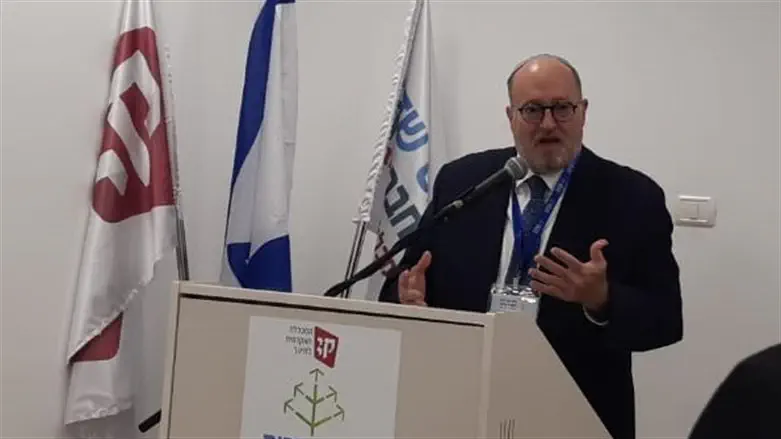
Rabbi Dr. Kenneth Brander is President and Rosh HaYeshiva of Ohr Torah Stone
Parashat Chukat marks a turning point in the journey of the Jewish people through the wilderness. After nearly forty years of wandering, a new generation begins to emerge, and with that transition comes a series of dramatic events — the deaths of Miriam and Aharon, Moshe’s sin of striking the rock at Mei Merivah , the battles against surrounding nations, and moments of both song and strife.
At first glance, the connection between the parasha and its haftarah from Sefer Shoftim appears to be only historical — both reference Israel’s encounters with Amon. Yet beneath the surface lies a deeper and unifying theme: the power of speech, and how it can either build relationships or break them beyond repair.
One of the parasha’s central scenes is Moshe’s mistake at Mei Merivah. Commanded by God to speak to the rock, Moshe instead strikes it (Bamidbar 20:8-11). The consequence is severe: Moshe is denied entry into the Land of Israel. God’s rebuke is telling — “Because you did not believe in Me to sanctify Me before the eyes of the Children of Israel” (Bamidbar 20:12). This was meant to be a moment of public education — not just a miracle, but a model of engagement through dibbur, speech. God wanted Moshe to demonstrate that spiritual growth and divine connection emerge not from force, but from relationships — and that relationships begin with communication (see Sforno on Bamidbar 20:8).
This theme is also expressed in our parasha through the deaths of both MIriam and Aharon - figures whose legacies, upon closer reading, are deeply tied to speech. Although Miriam is often associated with water—-our Sages note that Miriam’s merit brought forth water from the well (see Ta’anit 9a), and indeed her passing is followed immediately by the loss of water (Bamidbar 20:1-2)— it was her voice that shaped her story. In song her voice moves the people in achieving a spiritual rendezvous with God and tragically, in her critique of Moshe questions the veracity of Moshe’s unique position with God and the people.
The Torah reminds us that words can carry profound consequences.
Aharon, the Ohev Shalom v’Rodef Shalom, the peacemaker who used words to reconcile and mend rifts between people (Avot d’Rabbi Natan 12:3) is ultimately remembered for his quiet strength. When tragedy struck his own family, he responded not with protest, but with silence — “Vayidom Aharon” (Vayikra 10:3).
Sometimes, restraint in speech is itself a form of holiness.
In a more uplifting moment, our parasha also tells of the “Song of the Well” — a brief, poetic expression of gratitude, where the nation comes together to voice unity and thanks (Bamidbar 21:16-18). And when Moshe reaches out to neighboring nations with messages of peace — speech before confrontation— the Torah reinforces the value of dialogue (Bamidbar 21:21-22; Devarim 2:26-29).
The haftarah, from Sefer Shoftim, contrasts this ideal, and warns of the dangers of irresponsible speech. Yiftach, a judge and military leader, is a man whose life is marked by rejection, broken relationships and destructive speech, rises to save Israel. But he makes a reckless, tragic vow that results in the death (or cloistering) of his only child (Shoftim 11:30-40). His words, spoken in haste, leave devastation in their wake, and serve as a reminder of speech’s potential to destroy. It is for this reason that this narrative is included in the haftarah according to Minhag Teiman - so that future generations will learn to be careful with speech.
The underlying message of our parasha and haftarah is timelessly relevant: Speech is the currency of connection, and has the power to work in ways both good and bad. With it, we build relationships, teach values, and shape community. Misused, it becomes a weapon that divides and destroys.
Chukat reminds us that every interaction — with God, with family, with society — begins with how we speak and how we listen. In an age inundated by constant communication, may we never forget the sacred weight of our words, and may we use them wisely, as tools for healing, holiness, and harmony.